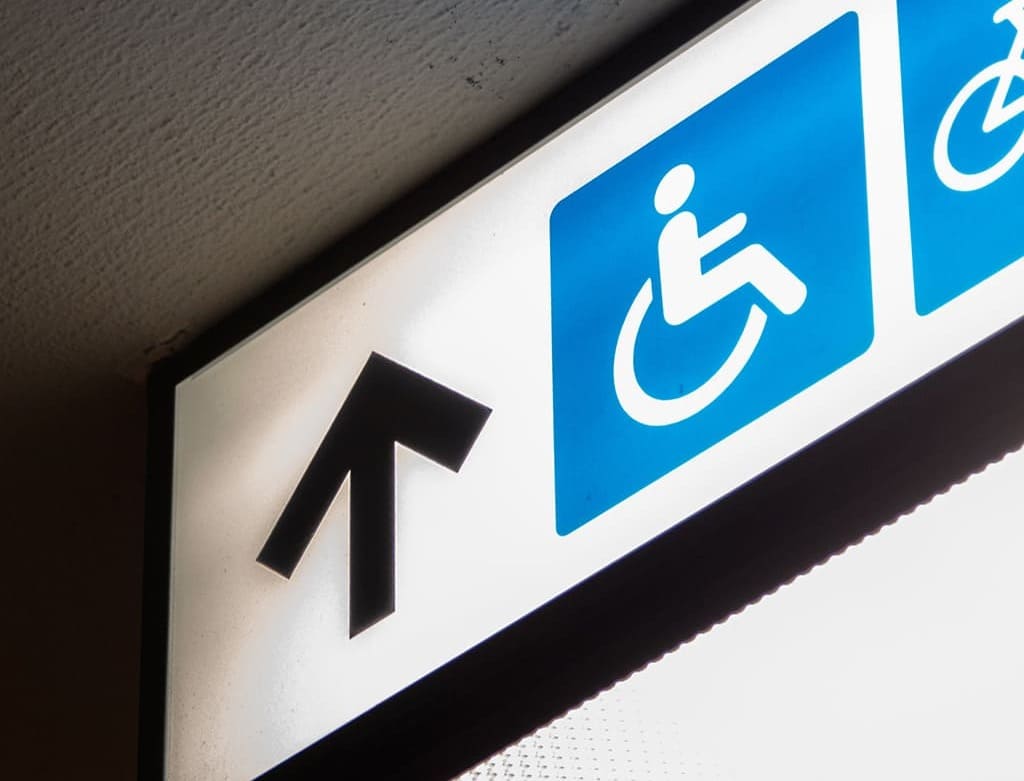
Description of educational activity
Montréal accessible vous donne l’occasion d’explorer avec vos élèves les questions du handicap, de l’inclusion et de l’accessibilité. Est-ce que vos élèves connaissent les limitations fonctionnelles? Est-ce que ça les touche de près? Peut-être plus qu’on le pense quand on sait qu’environ 15 % de la population québécoise a au moins une incapacité. L’activité Montréal accessible incite les jeunes à analyser leur environnement. La ville est-elle adaptée aux personnes ayant une limitation fonctionnelle? Quels aménagements permettraient de faire de Montréal une ville accessible et inclusive?
Accessible Montréal takes place at the MEM in three stages:
- A discussion with students to define functional limitations. Students may discover that disability issues affect them more than they think.
- Experiments involving the kinds of obstacles faced by people with functional limitations. How can you find content if you are vision impaired? Or understand a video if you are hearing impaired? In groups of two, students consider the impacts of certain functional limitations and try to find information in the exhibition through the prism of these limitations.
- An investigation of the MEM’s public spaces with accessibility in mind. What has the MEM done to facilitate access to its spaces, contents, and services? How can they be made even more accessible?
Objective
- Understand the reality of citizens with functional limitations.
- Identify issues related to universal accessibility and inclusion.
Links to the Québec Education Program (QEP)
Elementary
Cross-Curricular Competencies
- Exercise critical judgement
- Construct one’s identity
- Cooperate with others
Culture and Citizenship in Quebec
Competencies
- Studies cultural realities
- Considers emotions
- Engages in dialogue
Themes and subthemes
- Self-knowledge / Self-perception / Construction of identity
- Characteristics of each person
- Stereotypes and view of the self
- Each person’s strengths and challenges
- Personal and collective values
- Relationships between individuals / Group dynamics / Collective life
- Civility
- Differences and similarities between individuals
- Inclusion and exclusion
- Influence of the group
- Rights and freedoms
- Opportunities to think about own life
- Success and adversity
Secondary
Cross-Curricular Competencies
- Exercise critical judgement
- Achieves his/her potential
- Cooperate with others
- Communicate appropriately
Culture and Citizenship in Quebec
Competencies
- Examines a variety of points of view
- Develops a point of view
- Engages in dialog
- Discerns the ethical dimensions of a situation
Themes and subthemes
- Identity
- Dynamics of belonging
- Citizenship
- Social cohesion
- Autonomy
- Interdependence
- Social solidarity
- Mutual help
- Injustice
- Equality and social inclusion
This workshop was developed with resources, tools, and documents created by AlterGo Expertise.
The MEM is listed in the Répertoire culture-éducation. The activity is eligible for financial support through the Sorties scolaires en milieu culturel.
Educational vision
The MEM's educational offering is the fruit of a collective effort involving a committee of some fifteen teachers and education specialists, as well as community partners working in the fields of civic engagement, living together and accessibility.
Our educational programs aim to equip young people to become citizens interested in their city, its challenges and its history. They aim to foster their awareness of the importance of living together and their commitment to their community.
Our programs talk about Montreal, its history, its territory and its people, through such perspectives as neighborhoods, immigration, citizen power and disability. The varied activities that make up our programs encourage students to share their experiences, develop critical thinking skills and empathy, and foster civic engagement.